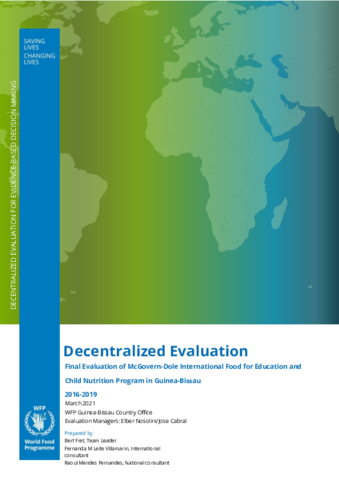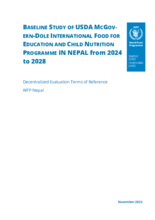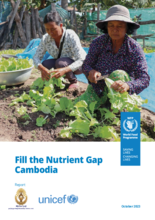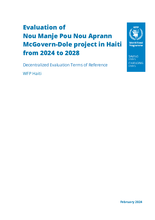
This decentralized evaluation was commissioned by the WFP Guinea Bissau Country Office and covers the USDA McGovern-Dole Grant Food for Education (FFE) Program in Guinea Bissau implemented by WFP CO from 2016 to 2019.
The evaluation was carried out between 2020 and 2021 and was designed according to the following international criteria: relevance, effectiveness, efficiency, impact and sustainability.
Overarching evaluation questions included:
- To what extent was the intervention relevant to the educational context of Guinea Bissau and the beneficiaries’ needs?
- To what degree have the interventions resulted in the expected results and outcomes?
- How efficient has the intervention been?
- To what extent was the intervention sustainable and what are the factors that contributed to it?
Below is a sample of key evaluation findings:
- The School feeding program is very relevant to the needs of pupils, families and communities since it reduces short term hunger and supplements household food income.
- The School feeding program has reached the poorest, the most vulnerable pupils of the country, as the program focused on rural areas, and covered about 60% of all existing schools.
- School meals have generally been regular and timely, of sufficient portion and good quality. In schools involved in the local purchase pilot projects, variations in the diet have been particularly appreciated.
- While implementing the program, WFP CO also supported capacities development for the ministry of education. WFP CO has played a critical role, together with the Centre of Excellence Against Hunger and the Brazilian Cooperation Agency, in assisting the Ministry of education to formulate the new National School Feeding Law, and to have it promulgated in 2019.
Key recommendations from the evaluation included:
- Monitor outputs results indicators that refer specifically to girls pupils from grade 4, 5 and 6.
- Adopt a more developmentalist profile regarding the School Feeding program with a perspective of sustainability.
- Integrate the School Feeding program with local efforts, to improve teachers’ skills and provide didactic materials, and for more efficient access to deworming medication for school children.
- Assist the Ministry of Education in its reflection about the future HGSF model and modalities and in the decision process for the selection of an effective approach, based on the various pilot projects that have been or are being conducted now.
- Conduct in-depth study on parental motivations to keep their daughters out of schools.



